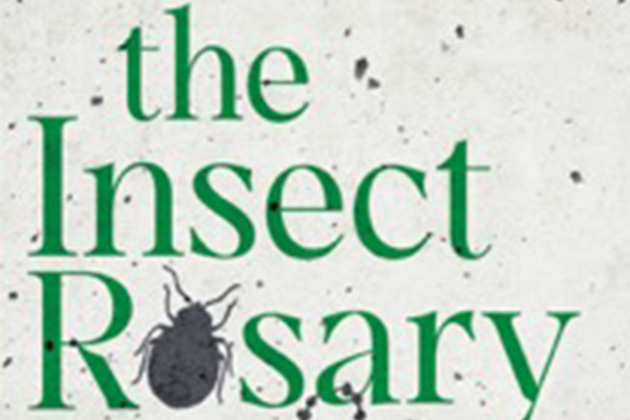Sarah Armstrong (Keynes 1994), who was awarded an MA in Modern Literature from Kent in 1995, has recently published her debut novel, which follows on from the short stories she has already published in magazines and anthologies.
Published by Sandstone Press, The Insect Rosary is the story of two sisters on holiday in Northern Ireland, who discover that their family are involved with disappearance and murder. The book follows two strands, both of which speak of secrets and silence. The first looks at the sisters’ relationship as children in 1982, whilst the other shows them as adults in the present day. British crime writer Elizabeth Haynes has described the novel as ‘an atmospheric, cleverly written exploration of the intensity of sibling relationships, a story full of dark humour, unexpected tensions and unanswered questions, leading to an unbearably tense conclusion.’
After graduating from Kent, Sarah, who lives in Essex with her husband and four children, obtained a bursary to pursue a PhD at the University of Greenwich in 1996, where she studied the work of Sidney Keyes. She began lecturing with the Open University in 2002, where she currently teaches creative writing, but it was with the birth of her third child that she remembered her aspiration to become a writer.
‘This novel wasn’t my first, but it was the first one where I made a conscious use of autobiographical material’ says Sarah. ‘I spent every summer in my childhood on my gran’s farm in Northern Ireland, which I loved, and went back twice as an adult. The farm, which is still in the family, had changed a lot in some ways (not at all in others) and I wanted to preserve it as I remembered it. The use of it as a setting in this novel was vital as I tend to use houses in my writing that I know well, and this house suggested a story of its own.’
As an author, the best advice Sarah says she received was never to use a semi-colon. ‘As a lecturer, it is something I detest. My publisher, Moira Forsyth, is trying to start a campaign to eradicate them from writing, and I think I agree!’
When thinking about the advice she would give to aspiring writers, Sarah explains that there are three things for which she is grateful to have as an author. ‘The first is friends. I have been lucky enough to create a small group of friends whose writing I admire and whose feedback I value. In a time where it seems so inevitable that you must pay for advice, this is a wonderful thing to have. Secondly, it is important to have confidence in what you are doing. Just because it isn’t right at the moment doesn’t mean it can’t be improved. However, sometimes you need the confidence to let something go that will never work. Thirdly, you need a lot of patience. I’m still struggling with this one.’

